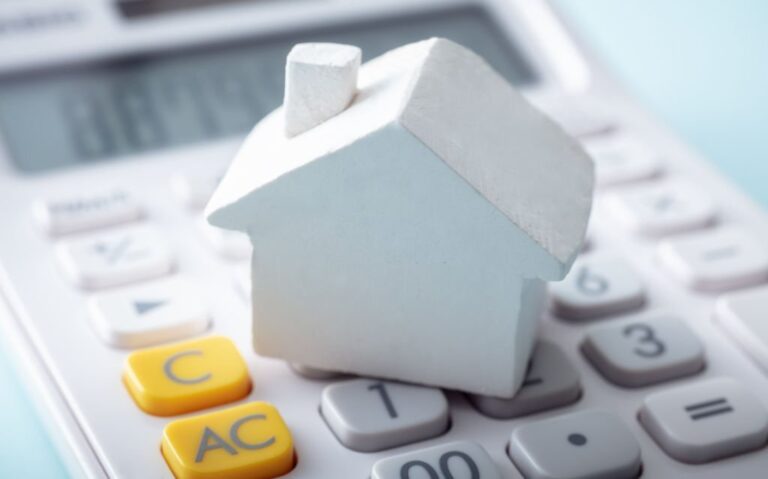Home valuation is an essential component in the realm of real estate transactions. It involves assessing the economic worth of a property, taking into consideration a variety of factors such as location, size, condition, and market trends. Understanding the value of a property is crucial for both buyers and sellers as it guides pricing decisions and ensures fair transactions.
Definition
Home valuation is a systematic process that establishes the market value of a property, which is generally defined as the transaction price between a willing buyer and a willing seller. There are two primary approaches: indicative valuation, which is an estimation often conducted by computer algorithms using past transactions, and on-site valuation, performed by qualified and licensed professionals who consider various factors, including location, condition, and prevailing market conditions.
Importance
Importance in Real Estate Transactions:
- Integral to Decisions: Valuation is foundational to the decisions of both buyers and sellers. For sellers, it helps in setting a realistic price that reflects the true worth of the property. Buyers, on the other hand, rely on valuation to ensure that they are paying a fair price.
- Financing and Taxation: Property valuations are also pivotal when seeking financing, such as mortgage loans, as it helps determine the amount that can be borrowed. Furthermore, taxation entities may use valuations for determining property taxes.
- Investment Analysis: Investors use real estate valuations to make educated decisions regarding property investments. Analyzing cash flows and rates of return through methods like the capitalization rate is critical for assessing the profitability of real estate investments.
Importance of a Valuation Report in Real Estate Deals
Real estate transactions revolve around an accurate and fair determination of property value. One key document facilitating this process is a valuation report, an unbiased, professional assessment of a property’s worth.
Role of the Valuation Report in Ensuring Accuracy of a Real Estate Deal
A valuation report ensures the accuracy of a real estate deal by providing a fair estimate of a property’s market value. This market value, the most probable price that a property will fetch in the market, is determined through a careful analysis of various elements, including the property’s unique features and location, general real estate market trends, and economic and social factors.
How Valuation Reports Help Buyers and Sellers
- Avoiding Overpaying and Underselling: A valuation report acts as a safeguard for both buyers and sellers. For sellers, it guides them on how to price their property fairly, ensuring they don’t undersell. For buyers, it helps them to not overpay, providing assurance that they are investing in a property at a fair market value.
- Managing Financing Needs: Banks and other financial institutions rely on valuation reports when determining the amount of financing a customer can receive. The maximum bank loan is often 75% of the purchase price or valuation, whichever is lower. By having an accurate valuation, lenders and borrowers can effectively manage their financial needs.
Use of Valuation Report in Managing Financing Needs by Financial Institutions
Financial institutions utilize valuation reports to establish the extent of risk associated with a potential loan. If the property’s value is significantly lower than the requested loan amount, it poses a high risk for the lender. On the contrary, if the property’s value is higher or equal to the loan amount, it mitigates the risk factor for the lender.

Impact on Mortgage Loans
A valuation report’s influence on the mortgage process cannot be overstated. In addition to determining the maximum loan amount, a detailed valuation helps potential buyers understand the financial commitment to purchasing the property. In default, the lender can recover their investment by selling the property, knowing they lent an amount justified by its worth.
Determination of Stamp Duty
Another financial consideration guided by property valuation is the stamp duty. Unlike bank loans, stamp duty is determined by the higher purchase price or valuation. Hence, an accurate valuation report is critical in determining a property’s associated costs and fees.
Valuation for Buyers
When it comes to purchasing real estate, understanding property valuation is of paramount importance for prospective buyers. This process can significantly impact the decision-making process and the overall financial commitment.
Role of the Valuation Process for Prospective Buyers
A real estate valuation determines a property’s ‘fair value.’ This aids potential buyers by providing them with a benchmark against which they can compare a property’s listed price.
Fair Value Determination Process for a Property
Fair value is the estimated property price in a transaction between a willing buyer and a willing seller, having reasonable knowledge of the relevant facts and neither being under any compulsion to buy or sell. Determining this value involves a comprehensive examination of a property, considering factors like its size, condition, location, demand in the market, and other influential economic and environmental conditions.
Implications of Different Valuation Outcomes
The outcome of a property valuation can impact a buyer’s decision in numerous ways. If the valuation exceeds the asking price, it may signal a good investment opportunity. Conversely, a valuation lower than the asking price might indicate overpricing, prompting the buyer to negotiate or reconsider the purchase.
Basis of Valuation
Understanding the factors that influence a property’s value is crucial in real estate transactions. They form the basis upon which a fair and accurate valuation is conducted.
Importance of Land Value
Land value forms a significant part of a property’s worth. This includes current and potential future amenities, the accessibility of the location, and environmental factors. For instance, a property closeto schools, shopping centers, or public transportation often has a higher value than one situated in a less accessible location.
Consideration of Price Histories and Rental Incomes
The historical prices of surrounding properties and the area’s rental income trends over time provide valuable context for a property’s valuation. These data points offer insight into the market dynamics of the area and help forecast potential future price movements.
The Size of the Property and Its Condition
Lastly, the physical aspects of the property, including its size and condition, significantly affect its valuation. More significant properties typically command higher prices, while properties in good condition are more appealing to buyers, thereby increasing their market value. Regular maintenance and renovations can, therefore, positively influence a property’s value.
Principles of Demand, Utility, Scarcity, and Transferability
The principles of demand, utility, scarcity, and transferability, collectively known as DUST, serve as the cornerstones of property valuation.
The principle of demand refers to the desire for ownership backed by the financial ability to purchase. It reflects the market’s need for property and directly influences its price.
Utility refers to the property’s ability to satisfy needs or wants, such as providing shelter or generating rental income. The greater a property’s utility, the higher its value.
Scarcity is the principle that emphasizes the finite nature of the real estate. When a property is scarce or unique, its value tends to increase.
Lastly, transferability relates to the ease with which property rights can be transferred from one party to another. Clear and easy transferability can enhance a property’s value.
How to Value a property
Property valuation is a meticulous process that involves various factors. Understanding these factors allows for a more accurate assessment of a property’s value.
Elements Considered During Valuation
The valuation process considers several aspects, including the property’s location, age, size, condition, and standard of finishes.
Location plays a pivotal role in property valuation, as properties in desirable locations tend to have higher values. The property’s age can also affect its value, with newer properties typically valued higher, although well-maintained older properties can also command high prices. Size is another essential factor, with larger properties generally having higher values.
The condition of the property and the standard of finishes also impact value. Properties in good condition that have high-quality finishes will usually be valued higher than those that require repairs or upgrades.
Renovations and Interior Design
Renovations and interior design can potentially increase a property’s value. However, the impact of these improvements on the property’s value can vary greatly. For instance, particular renovations, such as updating kitchens or bathrooms, can add substantial value, while others might not have a significant impact. It’s crucial to understand that the value added by renovations should ideally exceed their cost for the investment to be worthwhile
FAQ:
Why is a valuation report important?
A valuation report is important as it estimates a property’s fair market value, serving as a crucial benchmark in price negotiations.
What is a valuation for buyers?
For buyers, valuation represents an essential tool to avoid overpaying and ensure a sound investment based on market value and property specifics.
What is the basis of valuation?
The valuation basis involves various factors, including the property’s location, zoning, size, number of rooms, and recent transactions of similar properties in the area.
What are the basics of real estate home valuation?
The basics in real estate home valuation include understanding the types of valuation (indicative and actual) and the factors that influence valuation, like land value, price histories, and rental incomes in the area.
How do you value a property?
To value a property, you may use online tools, consult a property agent, or hire professional valuers who consider key factors such as the property’s condition, location, and comparable properties.




